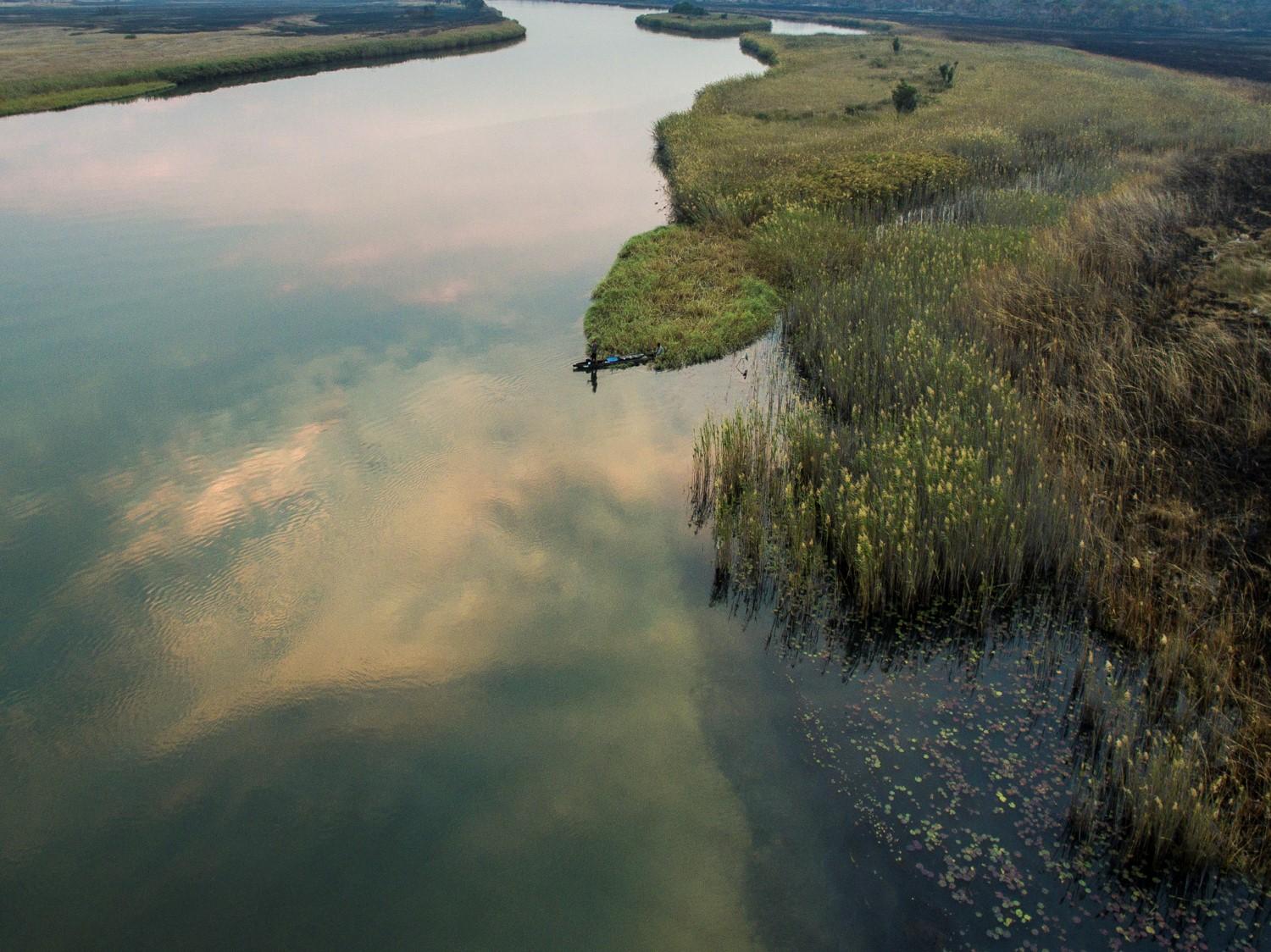- Home
- About Us
- Background
- Mandate
- Cubango Okavango River Basin
- Governance
- Strategy and Approach
- Member States
- Our Work
- Partners
- Climate Resilient Infrastructure Development Facility (CRIDF)
- European Union (EU)
- Southern African Development Community (SADC)
- Swedish International Development Cooperation Agency (SIDA)
- The World Bank (WB)
- United Nations Development Programme (UNDP)
- United States Agency For International Development (USAID)
- Resources
- News and Events
- Opportunities
- Contact Us
- FAQ's
- Connect With Us
- i
- t
- f

Thematic Area 4: Environment and Biodiversity

The Cubango-Okavango River Basin (CORB) supports extraordinarily high levels of biodiversity and sustains globally important wetlands. The rich biodiversity, land and water resources of the of the CORB, in particularly its wetlands, channels, riparian woodlands and adjacent dry land woodlands, form the basis of important ecosystem services. These ecosystem services, particularly the provisioning services, contribute significantly to socio-economic development and livelihoods of rural and urban communities within the basin, and even further afield. Although challenges exist in CORB that already places pressure on environment (such as large scale deforestation through logging and charcoal manufacture, and extensive and frequently occurring fires), the basin is still considered as existing in a largely unaltered state as it pertains water resources.
The current status of this water resources component of the biodiversity is largely attributed to limited economic activities in the CORB (other than tourism in the Delta and Panhandle). However, a recent project titled the Multi-Sectorial Investment Opportunity Analysis (MSIOA) identified potential economic development types and scales that has potential to harm the CORB environment and its rich biodiversity. Such potential developments include large hydro-electric power dams, large scale irrigation schemes and large scale water abstraction for transfer to municipalities outside the CORB. It is therefore critical that such development be adequately advised by scientifically informed environmental and hydrological management programmes. Such environmental management frameworks and programmes should be informed by data and information of high quality and adequate frequency, as well as alignment with the hydrological management programmes that also support the development decision making processes, types and scales in the basin. Hence, the need for comprehensive CORB environmental and biodiversity monitoring cannot be overemphasised.
Meanwhile, the TDA economic analysis has shown the economic potential of sustainable use of the basin ecosystem, and tourism in particular, outperforms the economic benefits potential from more water-use intensive development options. At the same time, the basin’s wetlands are critical for ensuring the flow regime of the river and the maintenance of dry season flows in particular on which the other basin ecosystems and the ecosystem services they provide depend – therefore these wetlands in particular require protection.
This thematic area (OKACOM BDMF 4) focuses on developing a better understanding of the basin ecosystems and the interrelation between different ecosystem functions and ecosystem services. The development of biodiversity, ecological, water quality, wetland and sediment monitoring systems is currently underway through the UNDP-GEF and EU support Programmes. A particular emphasis is placed on developing sustainable wetland management systems given the critical importance of wetlands for the Okavango ecology and livelihoods, and to identify transboundary ecological monitoring locations and provide associated training to Member States. In addition, the TDA identified climate change as one of the major drivers of ecosystems change in the CORB. The increase of climate change awareness among basin communities and the development of climate change adaptation measures suited to the conditions in the basin have therefore been identified as critical.
Key Activities
- Establishment of a CORB Biodiversity monitoring programme
- Establish an ecological monitoring framework and supporting Member States training
- Development of wetland monitoring and management system
- Increasing awareness of CORB communities to climate change and adaptation measures therein.
Thematic Areas & Activities
News
subscribe for news notification by email
Photo Credit: Kostatin Luchansky, National Geographic, Okavango Wilderness Project.
© [current-date:custom:Y] [site:name]

